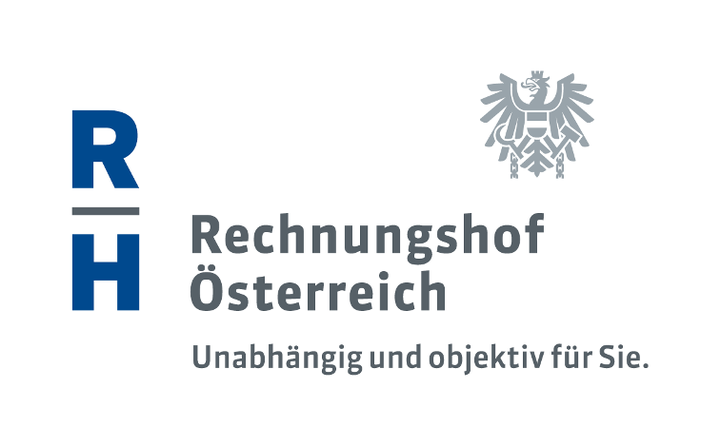Universities must do more for people with disabilities

The Austrian Court of Audit (ACA) carried out and audit on "Working and Studying in a Barrier-Free University Environment“ and published the corresponding report today. The ACA’s auditors took an exemplary, in-depth look at the University of Natural Resources and Life Sciences Vienna (BOKU Vienna) and the Graz University of Technology (TU Graz). They critically note that both universities fell far short of the obligation to employ eligible disabled persons – i.e. employed persons whose degree of disability is at least 50 per cent and who are available to the labour market. Furthermore, they emphasize that students with disabilities that had a negative impact on their studies were significantly more affected by financial problems.
The audited period essentially spanned the years from 2015 through 2020.
Compensation payments of EUR 5.33 million due to non-performance
Pursuant to the Employment of Persons with Disabilities Act, at least one eligible disabled person shall be employed for every 25 employees. If an employer fails to fulfil this obligation, a compensation tax must be paid. The ACA criticizes that in December 2020 none of the 22 public universities fully complied with their obligation to employ eligible disabled persons. Only 980 of the 2,216 mandatory positions were filled. This corresponds to a rate of 44 per cent. Consequently, the universities had to pay around EUR 5.33 million in compensation payments in 2020.
The auditors point to the fact that the adoption of a personnel policy that takes greater account of the provisions of the Employment of Persons with Disabilities Act (Behindertengleichstellungsgesetz) could prevent high compensation payments. Furthermore, by complying with the employment obligation, universities could increasingly serve as role models for society.
The ACA therefore recommends to the Federal Ministry of Education to encourage universities to comply to a greater extent with their obligation to employ eligible disabled persons. Furthermore, an exchange of experience on staff-related issues should be initiated among the universities in order to provide new impetus for their personnel policy and to incentivize them to comply more with the obligation to employ eligible disabled persons.
The auditors also recommend to the BOKU Vienna and the TU Graz to comply more fully with the obligation to employ eligible disabled persons in order to prevent compensation payments.
Supplements to student grant have remained unchanged for 15 years
In 2019, 39,100 students in Austria had disabilities that rendered their studies difficult. This equals a share of 12.2 per cent of the total number of students. At the BOKU Vienna, this share was slightly lower at 11 per cent and at TU Graz at 10 per cent.
In its report, the ACA points to the results of the Student Social Survey 2019 (Studierenden-Sozialerhebung 2019), according to which students with disabilities that rendered their studies difficult were significantly more affected by financial problems. However, in the regulation on the granting of study subsidies for students with disabilities, the amount of supplements to the student grant has remained unchanged for over 15 years.
Neither user-friendly nor barrier-free
The ACA criticizes the fact that although the BOKU Vienna’s brochures for first-year students contained information on the topic of studying with disabilities, they were not accessible for persons with disabilities. In addition, content on this topic was difficult to find on the BOKU Vienna website. The website was neither user-friendly nor accessible for persons with disabilities.
In the information material provided by the TU Graz, the topic of disability remained largely unaddressed. However, the brochure containing information on the start of studies was available as an accessible document. The auditors note that the support services for accessible studying were described concretely and clearly on the website of the TU Graz website.
- pdf Datei:
- 4,425.2 KB
- Umfang:
- 130 Seiten
Report: Working and Studying in a Barrier-Free University Environment (in German)
The ACA audited barrier-free working and studying at universities exemplarily at the University of Natural Resources and Life Sciences Vienna and the Graz University of Technology. The two universities were audited with regard to their roles as employers and as educational institutions. The audit aimed at presenting the legal framework conditions as well as at assessing the strategic management measures on the topic of disability, the measures to fulfil the requirements of the Employment of Persons with Disabilities Act (Behindertengleichstellungsgesetz), the training measures for staff with regard to an inclusive university, the measures of the universities on accessibility as well as the support services for employees and students with disabilities. In using the term “disability”, the ACA was guided by the definition of the UN Convention on the Rights of Persons with Disabilities. This includes not only physical, intellectual or sensory impairments, but also mental or chronic illnesses. The audited period essentially spanned the years from 2015 through 2020, although, in some cases, the ACA also took into account facts that did not fall within this period.


